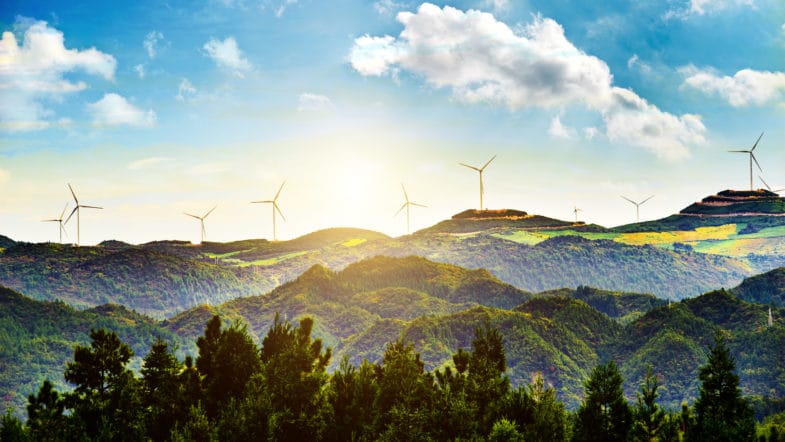IIGCC publishes a global sector strategy for electric utilities as part of Climate Action 100+ initiative, outlining priority actions for companies to remain within limited emissions budget set by IEA net zero pathways
Report finds majority of companies still need to set net zero targets whilst existing net zero targets need to be brought forward by 10-15 years
Only one of 68 publicly listed power companies has a decarbonisation plan consistent with the IEA 1.5C pathway
Findings will support investor engagement with leading electric utility companies through Climate Action 100+
Investors involved in Climate Action 100+, the world’s largest investor engagement initiative on climate change with signatories responsible for over USD $60 trillion in assets, have set actions the electric utilities sector needs to take to decarbonise in line with the IEA Net Zero by 2050 scenario.
These actions, outlined in Global Sector Strategies: Investor interventions to accelerate net zero electric utilities, were published today by IIGCC, one of the founding investor networks of Climate Action 100+. The report will inform constructive engagement between investors and electric utility companies on their net zero transitions.
Representing 40% of annual emissions, the global electricity sector is responsible for more emissions than any other sector, with many sectors dependant on the decarbonisation of electricity for their own net zero plans. With electricity demand predicted to grow over 166% globally by 2050, urgent action is needed now to decarbonise the sector and limit the global temperature rise to 1.5oC.
Although the emissions intensity of power generation is falling, absolute emissions are not. In fact, developing countries – particularly in Asia – continue to expand their fossil fuel generation assets.
In order to align with the IEA’s Net Zero by 2050 scenario, emissions from electricity generation need to reach net zero by 2040 globally and by 2035 in advanced economies. The pathway to reaching these targets is critical, with most of the reduction in annual emissions needing to take place by 2030.
Whilst many power companies believe they can achieve net zero emissions, the sector is not currently on track to reach this within the timeframe required. The report finds that Ørsted is the only one of the 68 publicly listed power companies assessed by the Transition Pathway Initiative to have a decarbonisation plan consistent with the IEA 1.5oC pathway.
Urgent and accelerated ambition is needed – more companies need to set net zero targets and existing targets need to be brought forward by 10-15 years.
The report also outlines investors’ expectations of how companies should address the social impact of their plans to achieve net zero by striving for a ‘just transition’. Companies should aim to mitigate any negative social impacts on vulnerable groups and maximise benefits to workers, communities, customers and the value chain.
To accelerate coordinated action, IIGCC and lead investors, in consultation with external sector experts and Climate Action 100+ focus companies in the electric utilities sector, have outlined priority actions for individual companies, the broader sector and investors.
Key expectations of companies, which are mapped against the Climate Action 100+ Net-Zero Company Benchmark indicators, include:
Setting a target to reach net zero in their generation business by 2040 globally and by 2035 in advanced economies, with more than 50% of decarbonisation achieved by 2030.
Mapping out a clear decarbonisation strategy that minimises reliance on CCUS, avoids the use of carbon offsets to reduce generation emissions to net zero and sets a date to phase out unabated coal generation.
Aligning capex with 1.5oC pathway, including an immediate halt to investments in new coal generation and a commitment to ensure any new natural gas generation will be net zero by 2040 globally and by 2035 in advanced economies.
Setting a net zero target for all sold or distributed energy, with a focus on natural gas for heating.
Committing to provide a just transition, setting out in a board level report how a company intends to manage the wider societal impact of the net zero transition and who will be responsible for implementation
The report is part of the Climate Action 100+ Global Sector Strategies workstream and also asks the electric utility industry to collaborate on sector-wide action to accelerate progress by:
Collaborating to remove common policy barriers to net zero via the appropriate national and regional industry bodies and publishing a joint report identifying actions that policymakers should take to overcome these barriers.
Funding joint R&D projects with peers and other value chain participants to accelerate the removal of key technological barriers to net zero.
Source
